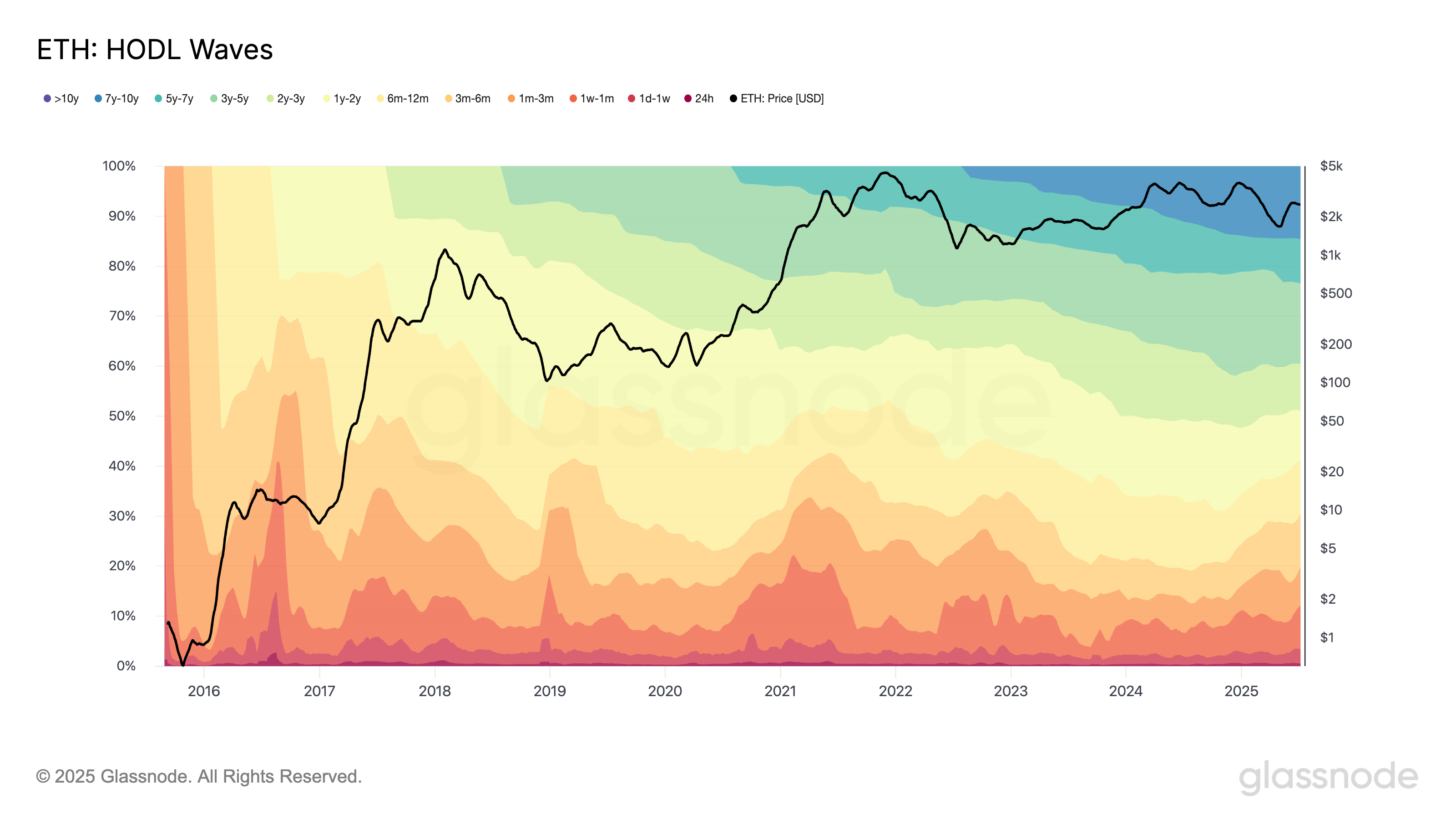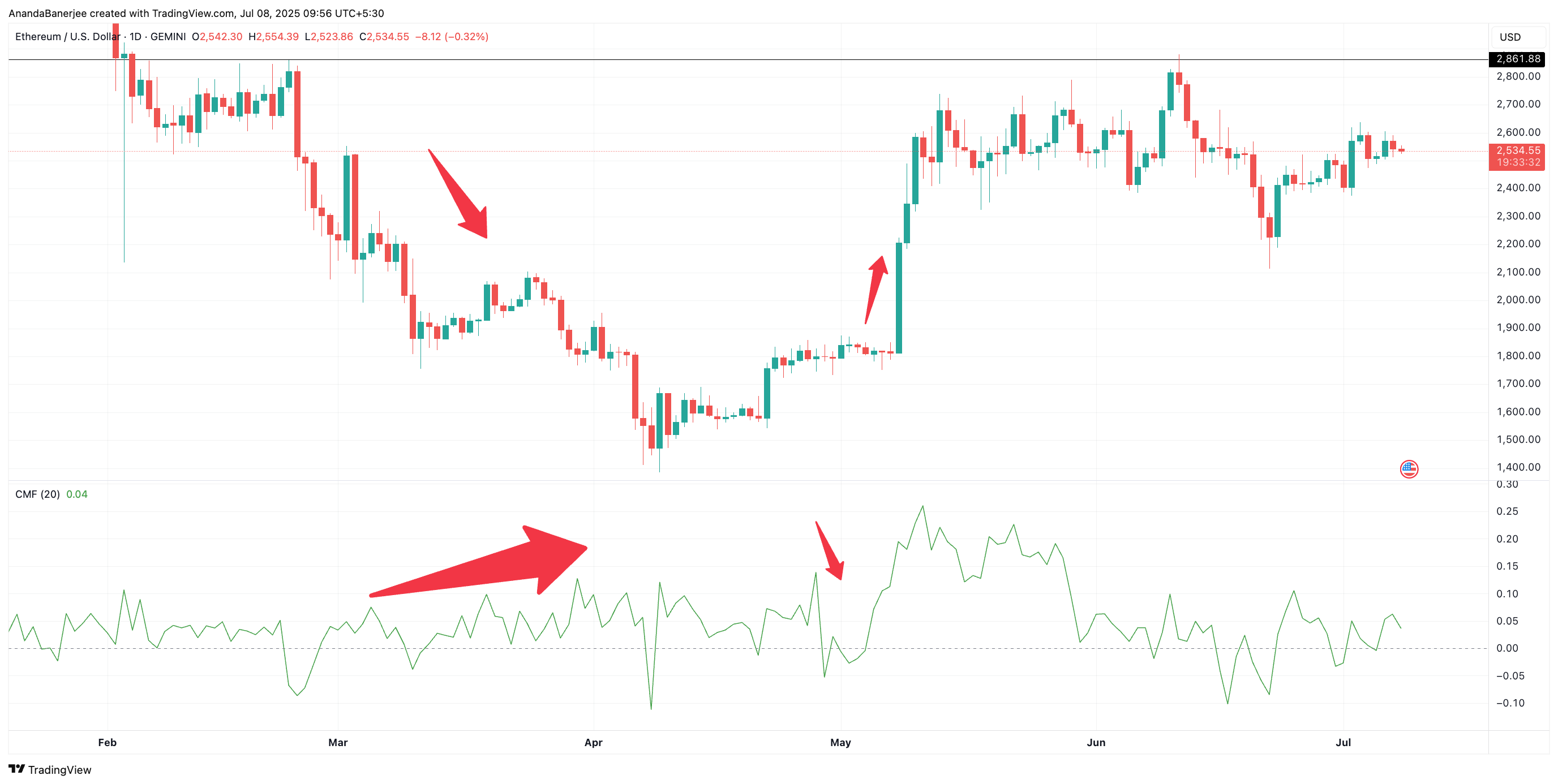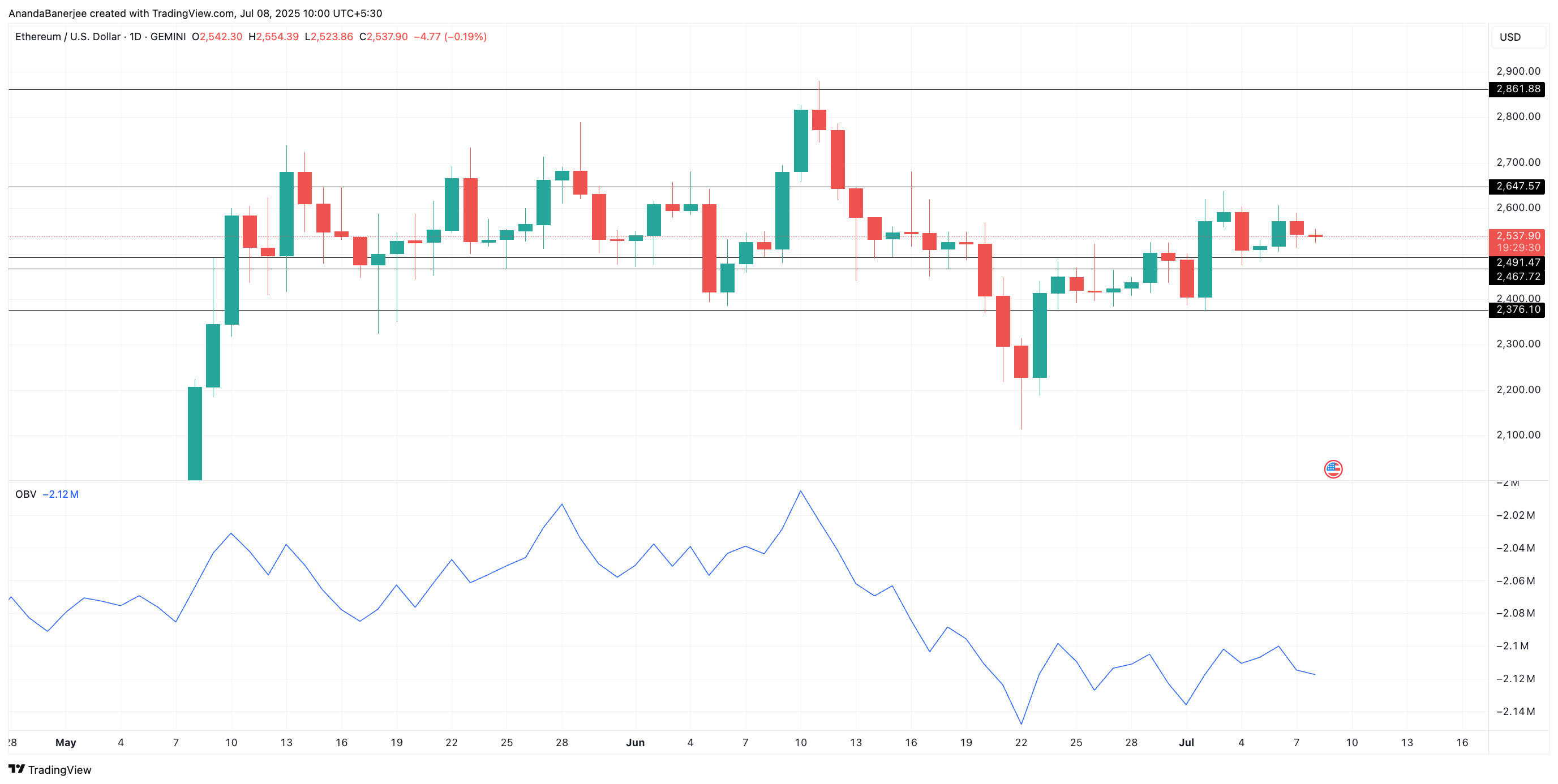Ethereum (ETH) Surges Toward $5,000—But On-Chain Data Reveals a Brutal Truth
Ethereum's rally hits a wall of skepticism as blockchain metrics flash caution. The $5K dream isn't dead—just delayed by cold, hard data.
The Bull Case Crumbles Under On-Chain Scrutiny
Network activity and whale movements suggest traders are taking profits, not building positions. Even DeFi's darling can't defy gravity forever.
A Reality Check for Moonboys
While ETH's tech remains unmatched, the charts now whisper what Wall Street won't admit: everyone's waiting for the next sucker to buy the top. Classic finance playbook—just with more memes.
Developer Activity No Longer Supports the $5,000 Hype
The most immediate red flag? Development activity.
Since mid-May, Ethereum’s dev contributions, tracked by the number of code commits and updates via major repositories, have dropped from 71 to just over 25, per Sentiment data.

That’s a NEAR 65% decline in raw developer engagement, even as the price has continued pushing higher. This divergence often signals that core protocol innovation and on-chain growth are lagging behind the market hype. Notably, a similar spike in dev activity in December 2024 failed to ignite any price rally, adding more weight to the caution.
If Ethereum’s foundation LAYER isn’t evolving aggressively, it will limit long-term price justification and question the near-term $5,000 optimism.
HODL Waves Signal Erosion in Long-Term Confidence
HODL Waves, which group wallet holdings by holding duration, show another worrying trend. The share of ETH held in long-term addresses (those with a holding period of 6 months or more) has decreased, even during recent price rallies.

The dominant portion of ETH now sits in the 1-month to 6-month holding bands, suggesting more recent hands and potential swing traders. Compared to previous instances of price breakouts, where 1Y+ cohorts dominated the waves, this structure reflects softer conviction, a sign that many ETH holders may not stick around if the price faces a rejection of resistance.
CMF Confirms Smart Money Is Sitting Out
Chaikin Money FLOW (CMF), a metric used to track volume-weighted accumulation, turned flat after a brief surge in April-May that coincided with Ethereum’s run from $1,300 to $2,700. Since then, it has struggled to push beyond 0.10, signaling a pause in meaningful buying pressure.

Price Structure Still Faces Tough Resistance
Ethereum is currently trapped below key resistance at $2,647. If momentum weakens further, support sits at $2,491 and $2,467. A breakdown below $2,467 could pull the price toward $2,376.

Meanwhile, On-Balance Volume (OBV), which adds or subtracts volume based on price direction, has been locked in a narrow band, just under -2.12 million. The lack of sizeable volume participation from whales (not one-off trades) and large wallets cast doubt on whether current levels, let alone $5,000, have the structural support to hold.
Without strong OBV or CMF readings to back a breakout, the $2,861 level will likely act as a firm rejection zone. That leaves $5,000 feeling like a psychological headline more than a viable next stop.
However, if ethereum flips $2,647 into support, a level clearly visible on the current chart, it could invalidate the bearish outlook. And that would prime the ETH price for a move beyond $2,800. However, the bearish invalidation would imply renewed momentum, especially if paired with rising developer activity and a stronger CMF rebound.

